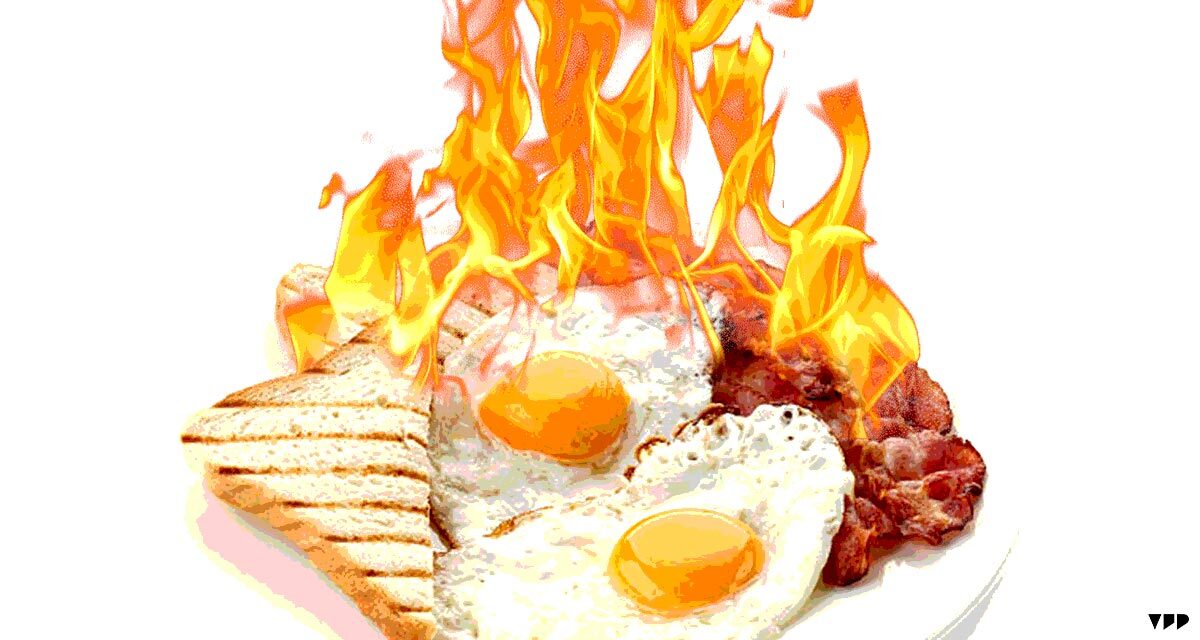Brunch: A brief history
Brunch is a corruption. That’s what English author Guy Beringer wrote when he first introduced the concept in an essay for Hunter’s Weekly published in 1895. Beringer painted the picture that if this new meal were to be created, the combining of “breakfast” and a “lunch(eon),” some values, traditions, and what was morally acceptable at the time would (and should) forever be corrupted.
Many Victorian Londoners got their rest Saturday night to wake up early for Church on Sunday, followed by a meal in the later afternoon that would require a lot of energy and fancy foods. But…
- If you stayed out late Saturday night and didn’t go to Church Sunday…
- And wanted a big meal with variety and also some booze…
- Then brunch was for you.
Brunch and going to Church were not mutually exclusive; however, Beringer did beg the question of how one could be in a religious frame of mind after a night out drinking and waking up at 8 or 9 am.
Advantages of the suggested innovation
Beringer wanted brunch to exist on Sunday at 12 pm or 12:30 pm, and because he couldn’t find this sort of meal on a Sunday, the following arguments (his words, not ours) in favor of brunch he said were incontestable:
- Early rising would not only be unnecessary but ridiculous
- You’d get up when the world is warm, or at least when it wasn’t so cold
- The world would be kinder and more charitable
- Brunch is cheerful, sociable, and inciting
- It puts you in a good temper
- It makes you satisfied with yourself and your fellow-beings
- It sweeps away the worries and cobwebs of the week
- Beer and whiskey would be admitted as substitutes for tea and coffee
And just a year later, in 1896, the word “brunch” was published in America for the first time introducing readers (future eaters) to what most food industry folks nowadays consider to be the “f–king worst.”[/vc_column_text][]Moneymaker and integrity killer
It wasn’t until the 1920s that the breakfast lunch combo truly hit the scene, although it would take many more decades for brunch to take over completely.
With rising interest, restaurants and hotels began to meet customer demands. Yet what was (still is) fun for any diner was (still is) the bane of existence for anyone in the food biz who cares about food and their mental health.
While some of us love eating brunch (we do), it’s had a pretty bad rep for some time. Why?
- In addition to restaurants not having a day off (although Monday or Tuesday closures have gained popularity), finding staff to cover after a busy Saturday night service is rough.
- Also, many restaurants don’t serve the freshest ingredients, food deliveries aren’t guaranteed on weekends, so you’re kinda left with what is available, and the restaurant’s A-team chefs are usually at home sleeping off the night before.
“Brunch menus are an open invitation to the cost-conscious chef, a dumping ground for the odd bits left over from Friday and Saturday nights,” Anthony Bourdain wrote in Kitchen Confidential. “And how long has that Canadian bacon been festering in the walk-in? Remember, brunch is only served once a week—on the weekends. Cooks hate brunch.”
Bourdain also told The New Yorker in a story about hating brunch that it was the devil’s playground. “It’s irresistibly profitable but came at the cost of unhappy kitchen staff,” and that on his days off, he hated it because it was crowded and the prices were way higher than the actual cost of the food.
We also asked some of our friends who work in restaurants as we wrote this, who all said brunch sucks. Kinda hard for us to wrap our head around that, but we get it; we’re not in the kitchen.
Sales continue to boom, however, despite polarizing opinions.
- 55% of Americans are continually dining out for breakfast or brunch, according to market research firm NPD Group.
- Also, nearly four in five Americans (79%) want to eat breakfast foods outside the traditional breakfast meal.
So it seems like the plea for brunch (almost 130 years ago), admittedly from selfish motives, is still what the people want.
Thank you, Guy.
TOGETHER WITH CANVA
No design skills needed! 🪄✨
Canva Pro is the design software that makes design simple, convenient, and reliable. Create what you need in no time! Jam-packed with time-saving tools that make anyone look like a professional designer.


